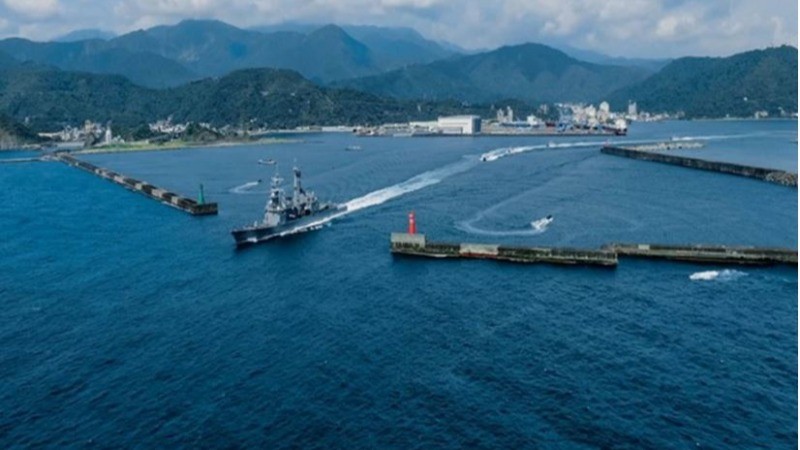
Taiwan’s Ministry of National Defence reported that 21 Chinese military aircraft, seven naval vessels, and one official ship were detected near Taiwan from Sunday morning to Monday morning. Notably, 16 of the aircraft crossed the median line of the Taiwan Strait and entered Taiwan's northern, southwestern, and eastern Air Defence Identification Zone (ADIZ).
In response to these incursions, Taiwan deployed aircraft, naval vessels, and coastal-based missile systems to monitor the situation closely.
The Ministry shared this update, stating, "21 PLA aircraft, 7 PLAN vessels, and 1 official ship were detected operating around Taiwan until 6 a.m. today. Sixteen of the aircraft crossed the median line and entered Taiwan's northern, central, southwestern, and eastern ADIZ. We are monitoring the situation."
This is part of a broader pattern of increased Chinese military activity near Taiwan in recent months. China has conducted frequent air and naval incursions into Taiwan's ADIZ and held military exercises close to the island. Since September 2020, China has ramped up its use of "gray zone tactics," a strategy aimed at achieving military objectives without direct conflict.
Taiwan has operated as an independent government since 1949, although China views the island as part of its territory and has expressed intentions to reunify it, using force if necessary.
Taiwanese President Lai Ching-te recently addressed the issue, criticizing China’s motives. He stated that China's aim to annex Taiwan is not based on territorial integrity but on a desire to reshape global order and achieve dominance.
“If territorial integrity is truly the concern, why hasn’t China reclaimed the land ceded to Russia under the Treaty of Aigun?” Lai questioned, referring to an 1858 agreement where China ceded a significant portion of Manchuria to Russia.
Lai reaffirmed Taiwan’s rejection of the "One China" principle, explaining that such an agreement would equate to surrendering Taiwan's sovereignty. He also committed to continuing efforts to modernize Taiwan's military and bolster its defense capabilities, including advancing the country's submarine program.
US, China Hold Key Talks to Strengthen Military Communication; Address Regional Tensions
Japan Protests to Chinese Naval Vessel Entering Its Territorial Waters
What If China and the US Go Nuclear Over Taiwan? New Analysis Reveals Alarming Risks